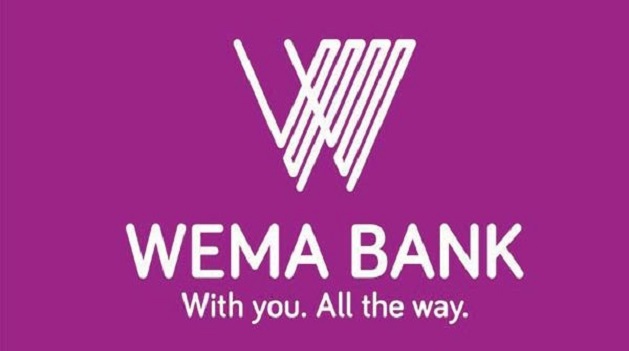General News
Air Freight Volumes Hit Highest Level in 2 Years
As a result of the July upbeat performance in the global aviation industry, air freight volumes are at their highest level since mid-2011.
Capacity increased 3.4% versus July 2012, pushing load factor down to 43.3%. However, load factors have stabilized compared to earlier in 2013.
The International Air Transport Association (IATA) announced global air cargo traffic results for July showing a continuation of the modest improvement trend experienced in June.
Global freight tonne kilometers (FTKs) were up 1.2% in July year-on-year, slightly better than the 0.9% year-on-year increase recorded in June, as growth in Europe and the Middle East offset weakness in Asia.
“The growth is encouraging, particularly in Europe. However, it is premature to say that air cargo may be emerging from the doldrums of the past 18 months. The weakness in Asia-Pacific freight markets and the deteriorating political situation in parts of the Middle East give ample reason for continued caution,” said Tony Tyler, IATA’s Director General and CEO.
On regional performance, African airlines experienced a 4.9% contraction in July year-on-year. Despite a relatively supportive demand environment, reflected in the year-to-date FTK growth of 2.2%, airlines in the region continue to face intense competition for their product.
Airlines in Europe, the Middle East and Latin America contributed to the improved performance versus a year ago.
For instance, cargo demand fell 1.4% compared to July 2012, while capacity climbed 2.6%. Asia-Pacific airlines have seen air freight contract 2.1% through the first seven months of 2013, the largest decline among regions.
Business activity in China remains sluggish, with the Markit/HSBC Purchasing Managers Indices for manufacturing and export orders continuing to show softness.
Moreover, the weakness extends beyond China, with emerging Asia trade volumes shrinking almost 5% in the first half of the year.
European carriers experienced a 1.5% increase in FTKs in July, while capacity climbed 3.5%. July was the second consecutive month in which air freight demand increased, giving rise to cautious optimism.
Questions remain, however, regarding the Eurozone’s ability to sustain growth. Although the Eurozone’s 18 month recession ended in the second quarter, performance among countries varies widely, with Portugal, Germany and France leading the expansion and Italy, Spain and the Netherlands showing contraction. Through the first eight months of 2013, FTKs rose 0.2% year-over-year.
North American airlines had another month of weak demand for air freight in July. FTKs fell 1.1% compared to the year-ago period, contributing to a 1.7% contraction in the first seven months of 2013 versus last year.
Signals out of the US are mixed. July’s performance represented a decline compared to June, but month-on-month growth rates have been especially volatile and recent indicators suggest rising business confidence, in line with an improving economy.
Middle East airlines led all regions with a 14.4% rise in FTKs compared to July 2012. Capacity climbed 11.1%. Year-to-date demand was up 11.7%.
The Middle East was one of just two regions in which airlines saw demand growth exceed capacity growth.
Part of the rise in year-on-year growth rates in July is owing to the timing of Ramadan, which took place mostly in July 2013, while in 2012, most of the holiday occurred in August.
Ramadan typically gives a boost to air freight demand for Middle Eastern carriers, as air transport of perishable foods and gift parcels increases to/from the region.
Latin American carriers’ cargo traffic was up 3.1% in July compared to a year ago, with capacity up just 1.7%. This result was broadly in line with the region’s performance during the first seven months of the year, when FTKs rose 3.4%. Demand for certain Latin American exports has shown strong growth momentum over recent months, providing a solid foundation for expansion in air freight demand.
General News
FG to Launch Fully Digital Expatriate Residence Permit Application Portal August 1

The Nigeria Immigration Service (NIS) has announced the rollout of a fully digital application system for the Combined Expatriate Residence Permit and Aliens Card (CERPAC).

The new online portal, https://cerpac.immigration.gov.ng, will become the exclusive platform for submitting CERPAC applications from August 1, 2025.
According to NIS, the digital migration is part of the Federal Government’s broader initiative to reform the immigration system by promoting transparency, improving operational efficiency, and enhancing the overall user experience for expatriates and organizations interacting with the Service.
In a press statement signed by A.S Akinlabi, Service Public Relations Officer, the NIS disclosed that manual or physical CERPAC forms will be completely phased out by July 31, 2025.
It noted that after this date, all applications must be submitted exclusively through the online portal.
The Service has advised applicants who have paid for physical forms but are yet to complete the submission process to do so on or before July 31, 2025, warning that any unsubmitted applications after the deadline will be deemed invalid, and associated payments may be forfeited.
Companies and individuals assuming Immigration Responsibility (IR) for expatriates have also been urged to ensure that all outstanding applications are finalized within the stipulated timeframe, to avoid potential delays or administrative setbacks.
“This digital transition marks a critical milestone in our effort to simplify processes and serve the public better,” the statement reads.
The NIS urged members of the public to direct all inquiries and correspondence regarding the new digital process to the office of the Public Relations Officer at the Service Headquarters in Abuja.
General News
Moniepoint Named Among World’s Top Fintechs by CNBC


Tosin Eniolorunda and Felix Ike
Moniepoint joins a select group of leading fintech players recognised for their financial performance and success across 2023-4. The list – compiled by CNBC in conjunction with market research firm Statista – follows analysis of key performance indicators, such as revenue growth, transaction volume, employee headcount, and capital raised. The result is a diverse group of 250 trailblazing fintech companies.
Founded in 2015 by Tosin Eniolorunda and Felix Ike, Moniepoint (formerly known as TeamApt Inc.) has been instrumental in advancing financial inclusion across Africa – especially for individuals and businesses operating in the informal economy, underserved by formal and traditional institutions.
The Company services 10 million+ customers through its comprehensive, integrated ecosystem of digital banking, credit, payments, and business management tools, and processes over one billion transactions monthly with volumes exceeding US$22 billion.
The accolade follows recent milestones for the Company which reiterate Moniepoint’s commitment to innovation and widening access to the formal financial system.
Notably, Moniepoint expanded its offering to Africans in the international diaspora via the launch of the MonieWorld platform. MonieWorld offers seamless remittance and digital financial services capabilities to individuals in markets such as the UK; the first time the Company has provided services to consumers outside Africa.
In June, Moniepoint was named in the TIME100 Most Influential Companies list for 2025, highlighting the Company’s extraordinary impact. Moniepoint has also been recognised by the Financial Times for three consecutive years as one of Africa’s fastest-growing companies, reflecting its remarkable revenue growth and business expansion; and by CB Insights in the Fintech 100 list, highlighting the Company’s status as one of the world’s most promising private fintech companies.
Tosin Eniolorunda, Group CEO of Moniepoint Inc., said: “It is an honour to be named as one of the world’s top fintech companies by CNBC. Moniepoint’s inclusion in this prestigious, authoritative list is testament to the hard-work and success of the entire team while highlighting our emergence as a key player shaping the future of fintech worldwide.
“Our mission to power the dreams of millions of African entrepreneurs and businesses continues to propel us forward with renewed vigor. As we continue to scale, we remain committed to driving global financial inclusion and widening access to economic opportunities for Africans everywhere – transforming lives and livelihoods.”
CNBC’s list of the world’s top fintech companies was launched in 2023 to identify global market leaders in technology-driven financial services. The list, which includes companies operating across various regions and market categories including banking solutions, digital assets, and payments, highlights the dynamic and rapidly evolving FinTech industry, offering readers, investors, and stakeholders a comprehensive overview of the leading players across various segments.
General News
Wema Bank Plans N2M Grant to Empower Women

Innovative financial institution and pioneer of Africa’s first fully digital bank, Wema Bank, has reaffirmed its commitment to advancing women’s empowerment by partnering with the SheCan Conference for the fifth consecutive year.

The collaboration has announced it would empower women with N2 million grant during the 6th edition of SheCan 6.0. conference, that will be held on July 18, 2025, at Balmoral, Federal Palace Hotel, Lagos.
The event is expected to host over 7,000 women under the theme “SheCan Do More.”
Announcing this partnership, Wema Bank through its women-focused platform, SARA by Wema, said it will be awarding ₦2 million in business grants to support women entrepreneurs within the SARA Community.
This grant is to support small and medium businesses within the SARA Community to scale up their business.
Ayodele Olojede, Head, Retail and SME Banking at Wema Bank, said, “Wema Bank is committed to empowering women entrepreneurs by providing the financial backing, tools, training, and networks they need to scale sustainably. Year after year, we’ve seen the incredible ripple effect that access, and opportunity can create in the lives of women and their communities.
“Through SARA by Wema, our goal is to create an environment where Nigerian women can dream bigger, build stronger, and lead the economy with confidence. This partnership with SheCan is a statement of belief in the power of women to transform society.”
“This year’s partnership represents more than sponsorship; it is a tangible investment in helping Nigerian women build sustainable businesses, scale their impact, and contribute meaningfully to economic growth.
“Eligible applicants must be women-led businesses with active Wema Bank accounts and must be registered members of the SARA Community.
“Interested participants are required to submit a written pitch of no more than two pages, detailing their business and founder story, the problem being solved, target audience and competitive advantage, proposed use of the grant, and the expected outcomes and community impact. Entries must also include the applicant’s Wema Bank account number, full name, and the email address used to join the SARA Community.”

 Telecom3 days ago
Telecom3 days agoNCC Introduces N10m Licence Fee for Bulk SMS Service

 Telecom3 days ago
Telecom3 days agoMTN Nigeria Targets $1Bn Cloud Market with Largest Modular Data Centre

 General News3 days ago
General News3 days agoWoodhall Capital and Partners Launch ₦1.5Bn Fund

 E-Business3 days ago
E-Business3 days agoFirm Highlights Top Risks of Quantum Computing

 E-Financial2 days ago
E-Financial2 days agoZenith Banks Leads as 8 Banks Suffer N156Bn Impairment Charges

 Telecom3 days ago
Telecom3 days agoPAT Taps Osi as CEO

 General News3 days ago
General News3 days agoBurna Boy Distances Himself from Meme Coin, Labels Crypto as Fraud

 E-Financial3 days ago
E-Financial3 days agoAfrica Launches PAPSSCARD, First Pan-African Card Scheme


























